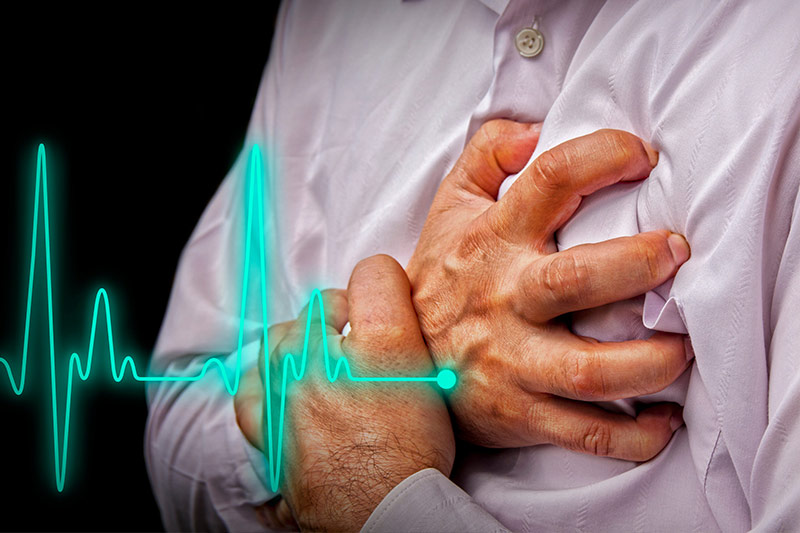Most US citizens are aware of the effects of smoking. What they might not know is that approximately 1 in 3 adults in the US (around 80 million people) are at risk of kidney disease. This is especially problematic given that 90% of those with kidney disease don't know they have it.
This means that large swathes of the smoking population are at risk of developing or aggravating a disease, despite it being preventable. For this reason, we wanted to clarify the connection between cigarettes and kidney patients and other acute effects of smoking.
What health complications are caused by cigarette smoking?
There's a reason doctors tell you to stop smoking. It is the largest cause of preventable disease, disability and death in the United States – accounting for more than 480,000 deaths every year. And it isn't just active smokers adding to the total; passive smoking is a real threat to non-smokers in the home and elsewhere.

The biggest threat that smoking poses to your body is lung cancer, causing around 70% of cases. However, it also causes cancer in other areas of the body, including:
- Mouth cancer
- Throat cancer
- Larynx cancer
- Esophagus cancer
- Bladder cancer
- Bowel cancer
- Cervix cancer
- Kidney cancer
- Liver cancer
- Stomach cancer
- Pancreas cancer
In addition, smoking increases your risk of developing problems with your blood flow and other conditions such as:
- Coronary heart disease
- Heart attack
- Stroke
- Cerebrovascular disease
- Peripheral vascular disease
As for non-smokers, second-hand smoke carries the same increased risk of cancer. In children, that risk is even higher. A child who's exposed to passive smoke is more likely to develop chest infections, meningitis, and a persistent cough. For babies, there's an increased risk of cot death and an ear infection called glue ear.
What is kidney disease?
Chronic kidney disease, or renal disease, is a long-term condition where your kidneys don't function as they should. It's associated with getting older and can get worse over time if not addressed with treatment, medication or lifestyle changes.
There is no cure, but you are encouraged to manage conditions such as high blood pressure and high cholesterol in order to keep your body healthy. In cases of advanced chronic kidney disease (end-stage renal disease), you may be required to undergo a process known as dialysis, a treatment that replicates kidney function. In more extreme cases, you may need a transplant.
What are the symptoms of kidney disease?
In the early stages, it's difficult to identify if you have renal failure (poor kidney health). It may only be diagnosed if you have a blood or urine test for another reason. As you get to the more advanced stages, however, symptoms can include:
- Nausea
- Tiredness
- Swollen ankles, feet or hands
- Shortness of breath
- Blood in urine
If you are experiencing any of the above symptoms, you should contact your doctor immediately. If you do catch it early enough, the risk factors of renal failure aren't as severe and may mean you can continue going about your daily life as normal.
How do I test for chronic kidney disease?
Kidney disease can be diagnosed using blood and urine tests. These tests look for high levels of certain substances in your blood or urine that indicate your kidneys aren't working as they should.
If you have a high chance of developing kidney disease – whether that's because of smoking, high blood pressure or another risk factor – you may be advised to have regular tests. If you're then found to have renal failure, you'll be told how severe the damage to your kidney function is.
How does cigarette smoking impact kidney function?
As we've discussed, smoking increases your risk of developing kidney cancer. We've also explained how cigarettes damage your heart and blood vessels. What isn't so obvious, though, is how these damaged vessels impact the blood flow to the kidneys and cause further kidney complications over time.
The reason is that smoking increases your heart rate, blood pressure and blood clot formation, and it promotes fatty acids in the arteries. This creates a restriction in your blood flow and causes problems with your renal function. Those with high blood pressure are especially vulnerable due to the health complications already associated with their condition.
Smoking also instigates or advances diabetic kidney disease, which is the most common cause of kidney failure. It aggravates the condition by slowing down your circulation so that your organs deteriorate over time. The same is true of your limbs – continuing to smoke with diabetes slows blood flow to your feet, making it harder for your body to heal sores and overcome infections.

How can I quit smoking?
The risk factor that smoking places on your kidney health is enormous and, as well as the countless other reasons, it should motivate you to stop smoking. There are multiple ways to do this – whether you prefer to go cold turkey or invest in Nicorette gum and nasal sprays.
If you're struggling to stop smoking, try and adjust your lifestyle so that there are fewer trigger points where previously you would have had a cigarette. By this, we mean that you should try and keep busy or distracted at times when you would otherwise be smoking, as well as exercise more generally and hang out with friends who are also former smokers or non-smokers.
Occasionally, your diet can trigger a desire for cigarettes. According to a US study, some foods such as meat typically make cigarettes more satisfying. Cheese, fruit and vegetables on the other hand are less likely to prompt your addiction. The same is also true of juice and water, which are both less likely to motivate you to smoke.
Stop smoking solutions offered by Medix
Keeping your kidney function in good shape is vital for a healthy body. Renal patients and those with acute kidney injury will be the first to tell you that taking the pressure off your blood circulation is the best strategy for avoiding end-stage renal failure. And it's for this reason that smoking should be one of your first priorities when it comes to that removal of pressure.
To help with your addiction, Medix stock a range of Nicorette products. If you'd like to discuss our various options with a member of the team, please call 1-866-500-6633 (toll-free phone number) or +44 1438 500111 (international phone number). Alternatively, we can contact you at a more convenient time – just submit your details through our contact form.






